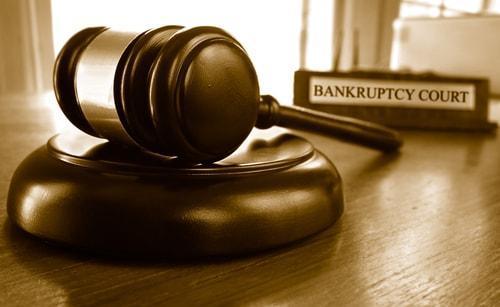Bankruptcy Basics: Understanding the Discharge Process
Posted on December 00, 0000 in Bankruptcy
 A discharge in bankruptcy releases debtors from the personal liability they hold in certain types of debts. In other words, the debtor is no longer obligated to pay the creditor, and the creditor is barred from taking any further legal action against or communicating with the debtor. However, there are some important things that borrowers should know about the bankruptcy discharge process, including its limitations, exclusions, and the time frame it takes to reach this point.
A discharge in bankruptcy releases debtors from the personal liability they hold in certain types of debts. In other words, the debtor is no longer obligated to pay the creditor, and the creditor is barred from taking any further legal action against or communicating with the debtor. However, there are some important things that borrowers should know about the bankruptcy discharge process, including its limitations, exclusions, and the time frame it takes to reach this point.
Discharge Time Frame
A discharge does not occur immediately after filing for bankruptcy. Instead, the debtor must complete the bankruptcy process. It is also important to note that the time frame in which the process is completed will vary, based on the type of bankruptcy being filed and the specifics of each case. For example, a Chapter 7 bankruptcy debtor usually receives a discharge once the time-period for creditor objections has expired (60 days after the 341 meeting). In contrast, Chapter 13 bankruptcy debtors must fulfill all their obligations under their repayment plan before their bankruptcy can be discharged. If the debtor fails to complete any provisions of their filing, including the instructional courses required by law, their discharge may be denied by the courts.
Creditors Can Still Enforce Liens
Although a debtor is no longer obligated to pay their lender once discharge has occurred, the creditor may still have the right to enforce a lien on secured property. For example, if you are filing for Chapter 7 bankruptcy and have a financed vehicle, the creditor may still recover the vehicle. You would no longer be obligated the pay the outstanding balance for the car, but you would not have the vehicle. For more specific information on how bankruptcy may impact your ownership of secured property, and advise on how you can maintain certain secured property despite bankruptcy, speak to an experienced lawyer.
Not All Debts are Discharged
While bankruptcy does cover many types of debt, it does not cover all debts. Certain categories (a total of 19, in all) are excluded from the discharge process. Examples might include debt obtained while drunk driving, most student loans, alimony, child support, and certain tax claims. To determine if you have any debts that cannot be discharged, and for assistance in determining how to handle these debts, contact an experienced bankruptcy attorney.
Contact Our McHenry County Bankruptcy Lawyer
If you are considering bankruptcy, contact the Thomas Law Office. Our seasoned
McHenry County bankruptcy attorney can examine your case, advise you on your options, and help you navigate through the complex bankruptcy filing process. Dedicated to your best interest, we always strive for the most favorable outcome. Schedule your personalized consultation by calling
847-426-7990 today.
Source:
http://www.uscourts.gov/services-forms/bankruptcy/bankruptcy-basics/discharge-bankruptcy-bankruptcy-basics
 A discharge in bankruptcy releases debtors from the personal liability they hold in certain types of debts. In other words, the debtor is no longer obligated to pay the creditor, and the creditor is barred from taking any further legal action against or communicating with the debtor. However, there are some important things that borrowers should know about the bankruptcy discharge process, including its limitations, exclusions, and the time frame it takes to reach this point.
A discharge in bankruptcy releases debtors from the personal liability they hold in certain types of debts. In other words, the debtor is no longer obligated to pay the creditor, and the creditor is barred from taking any further legal action against or communicating with the debtor. However, there are some important things that borrowers should know about the bankruptcy discharge process, including its limitations, exclusions, and the time frame it takes to reach this point.
